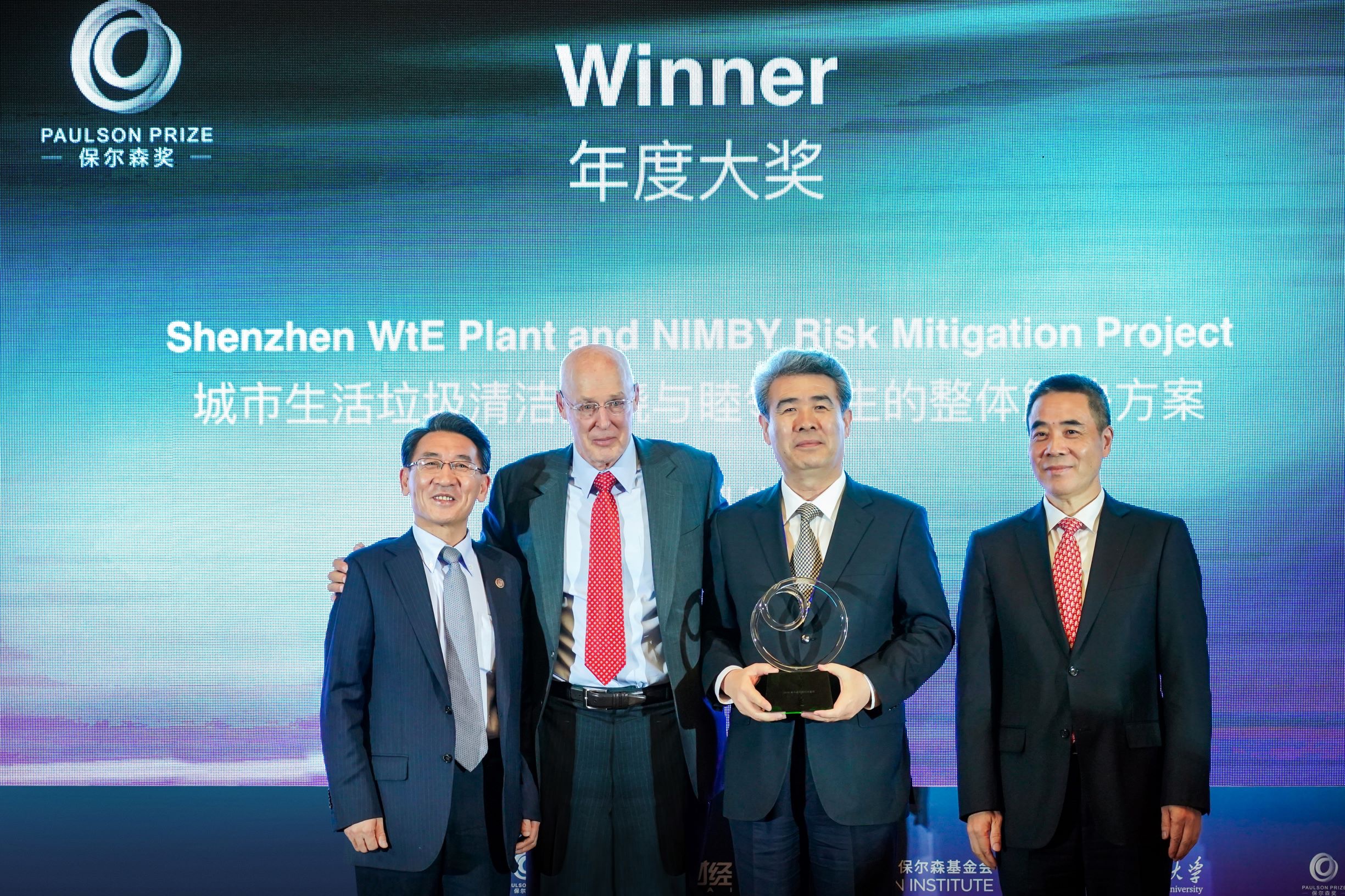The Paulson Institute, in partnership with Tsinghua University, today announced the winner of the 2019 Paulson Prize for Sustainability. The prestigious annual award went to Shenzhen Ecological Energy Park in Shenzhen, Guangdong for its work in waste-to-energy efforts.
The Shenzhen Ecological Energy Park is an industry-leading facility that uses advanced technologies to lower harmful emissions and eliminate the need to use fossil fuels for power generation by turning waste directly into electricity. To date the project has saved more than 360,000 tons of standard coal.
“This project is an inspired solution reducing environmental pollution and promoting clean energy development,” said Henry M. Paulson Jr, chairman and founder of the Paulson Institute. “The Shenzhen Ecological Park exemplifies why we created the Paulson Prize for Sustainability. Its innovative waste-to-energy concept will make a big difference and merits both attention and replication.”
The Energy Park is attractive, ultra-modern facility that serves the community in a variety of ways. With beautifully landscaped grounds, engaging public education space, and a visitor center for eco-tours, the facility today is a gathering place for the community.
“Winning projects of the Paulson Prize demonstrates the courage and wisdom of Chinese cities and companies to incorporate sustainability in business with innovative ideas, advanced technologies, unremitting exploration and positive actions,” said Xue Qikun, Vice President of Tsinghua University. “Tsinghua University, as the co-host of the Paulson Prize, encourages more Chinese cities and companies to scale up demonstration projects as a practice to promote sustainable development in China”
Launched in 2013, the Paulson Prize is awarded annually to a project in China that provides an innovative, scalable, and market-based solution at the intersection of economics and the environment. Evaluated by an independent jury committee, chaired by former Chicago Mayor Richard Daley, the Prize aims to support China’s transition to a low carbon economy. China is the largest carbon emitter in the world, and can serve as a model for other countries seeking solutions to promote economic growth while being conscious of protecting the environment.
This year, the Paulson Prize received a record number of submissions, doubled from last year. The increase is a reflection of growing awareness around the Paulson Prize as well as China’s increased focus on sustainable growth and urbanization. Two other projects were nominated for the Prize from Guangzhou and Ordos, Inner Mongolia and recognized during the ceremony for providing cutting edge, innovative, market-based solutions to promote low carbon growth in China.




